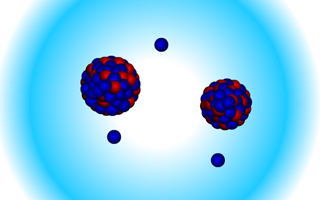Interactive Animations
Our interactive animations help convey core scientific concepts. Each animation is associated with a learning module that provides detailed background on the subject in question.
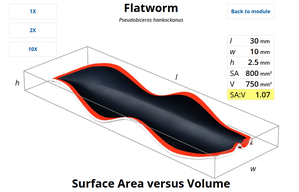
Volume versus surface area
animation of a marine flatworm superimposed with a rectangular prism to emphasize the way volume (V) increases much more than surface area (SA) at each size increase.
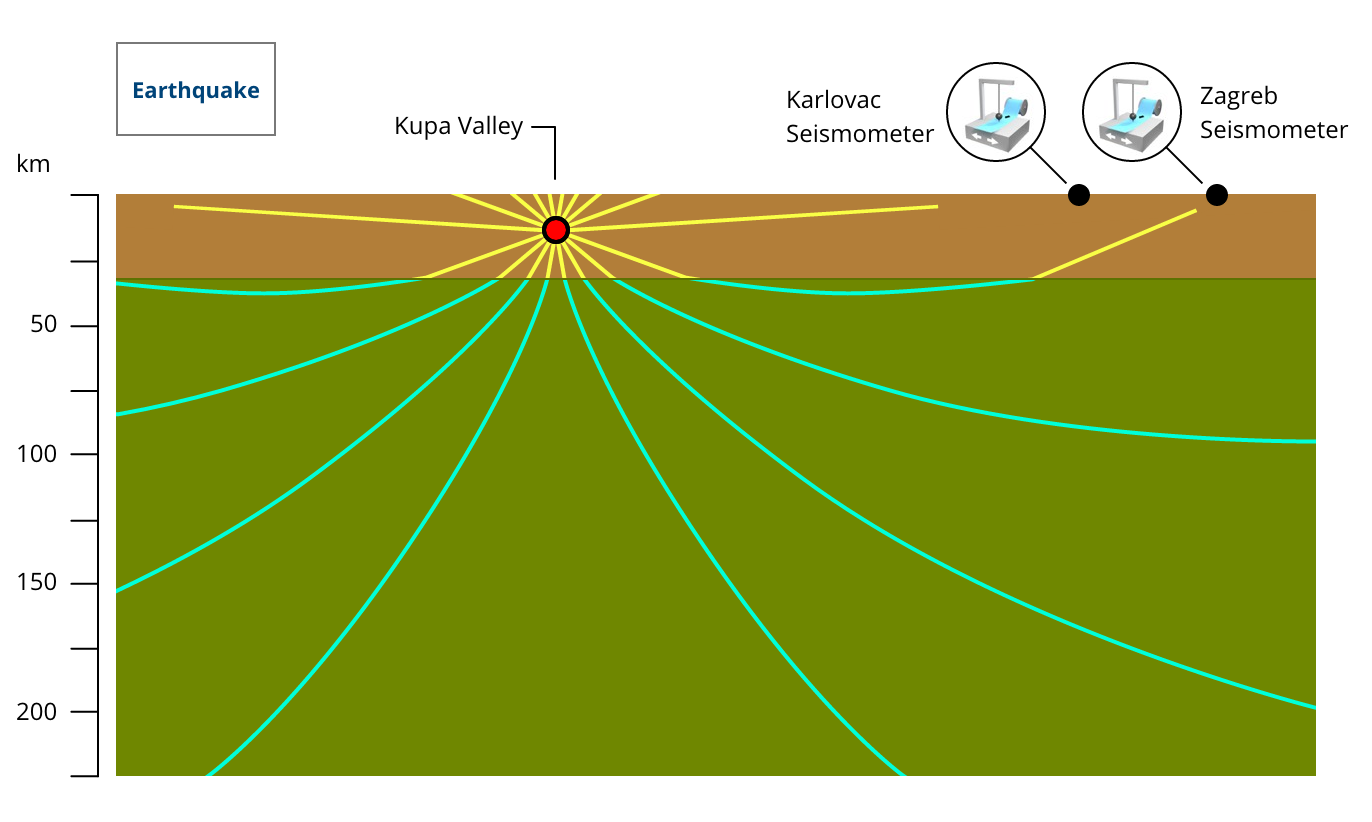
Moho
This animation simulates what Andrija Mohorovičić observed in 1909 - that seismic waves travel faster in the mantle than they do in the crust because it is composed of denser material.
Reading: Earth Structure
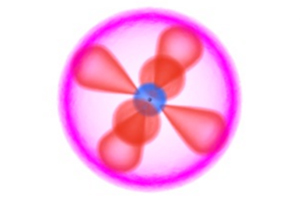
Atomic and ionic structure of the first 12 elements
This animation provides the planetary and quantum view of the electron configuration for the first 12 elements on the periodic table. In addition, users can select a view of the nucleus of each atom and configuration of the major ion formed by the atom. Simply click on an element from the table above to proceed.
Reading: Atomic Theory I
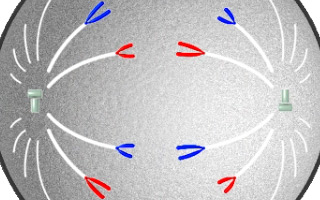
Prokaryote vs. Eukaryote Cell Division
Overview of cell division in prokaryotic and eukaryotic cells, showing how similar processes of replication, segregation, and cytokinesis occur.
Reading: The Discovery and Structure of Cells
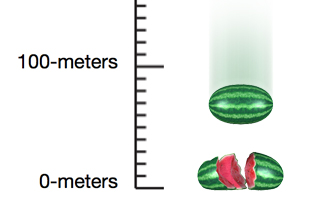
Acceleration during Free Fall
Demonstration of how the rate of acceleration of an object is independent of the object's mass, showing two objects with different masses falling at the same rate (if we ignore air resistance).
Reading: Gravity
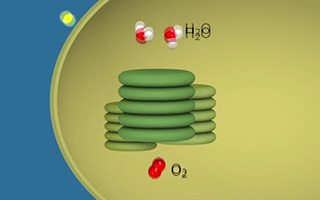
Photosynthesis I
Overview of Photosynthesis provides a short illustration of the light-dependent reactions that take place in a chloroplast during photosynthesis.
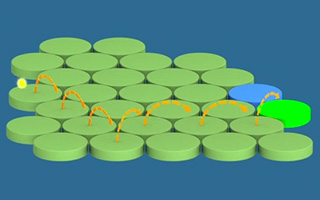
Photosynthesis II
Overview of the Photosystem II reaction, which is the first step of photosynthesis. Shown is how a chlorophyll molecule (p680) uses light energy to take an electron from a water molecule, generating ATP and leading to Photosystem I.

Dalton's Playhouse
Dalton's Playhouse simulates the experiments conducted by Priestley and Lavosier that led to Dalton's theory of matter.
Reading: Early Ideas about Matter
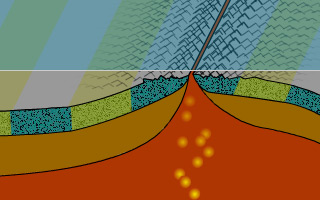
Mid-Ocean Ridges
Mid-Ocean Ridges provides a detailed graphic depiction of the geological process that occur at spreading ridges and subduction zones.
Reading: The Origins of Plate Tectonic Theory
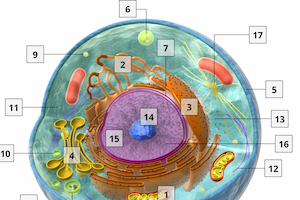
The Structure of Animal Cells
The Structure of Animal Cells presents the sub-cellular world of a typical animal cell with detailed descriptions of core organelles and their function.
Reading: Discovery and Structure of Cells
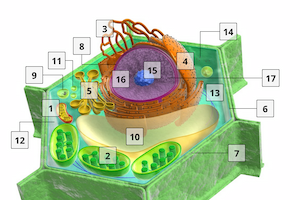
The Structure of Plant Cells
The Structure of Plant Cells presents the sub-cellular world of a typical plant cell with detailed descriptions of core organelles and their function.
Reading: Discovery and Structure of Cells
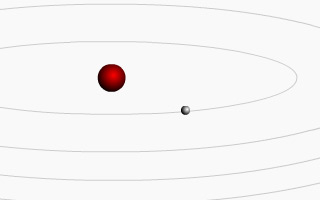
Bohr's Atom
Neils Bohr proposed that electrons resided in specific orbitals within atoms in his groundbreaking work on atomic theory. This animation allows you to add different amounts of energy to see how the electron in a hydrogen atom responds, and then manually allow that electron to relax to specific orbitals within the atom.
Reading: Atomic Theory II
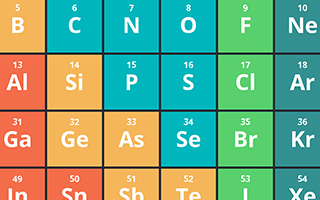
The Illustrated Periodic Table
The Illustrated Periodic Table presents a conceptual representation of the planetary model structure of the first eleven elements on the periodic table and their major ions.
Reading: The Periodic Table of Elements
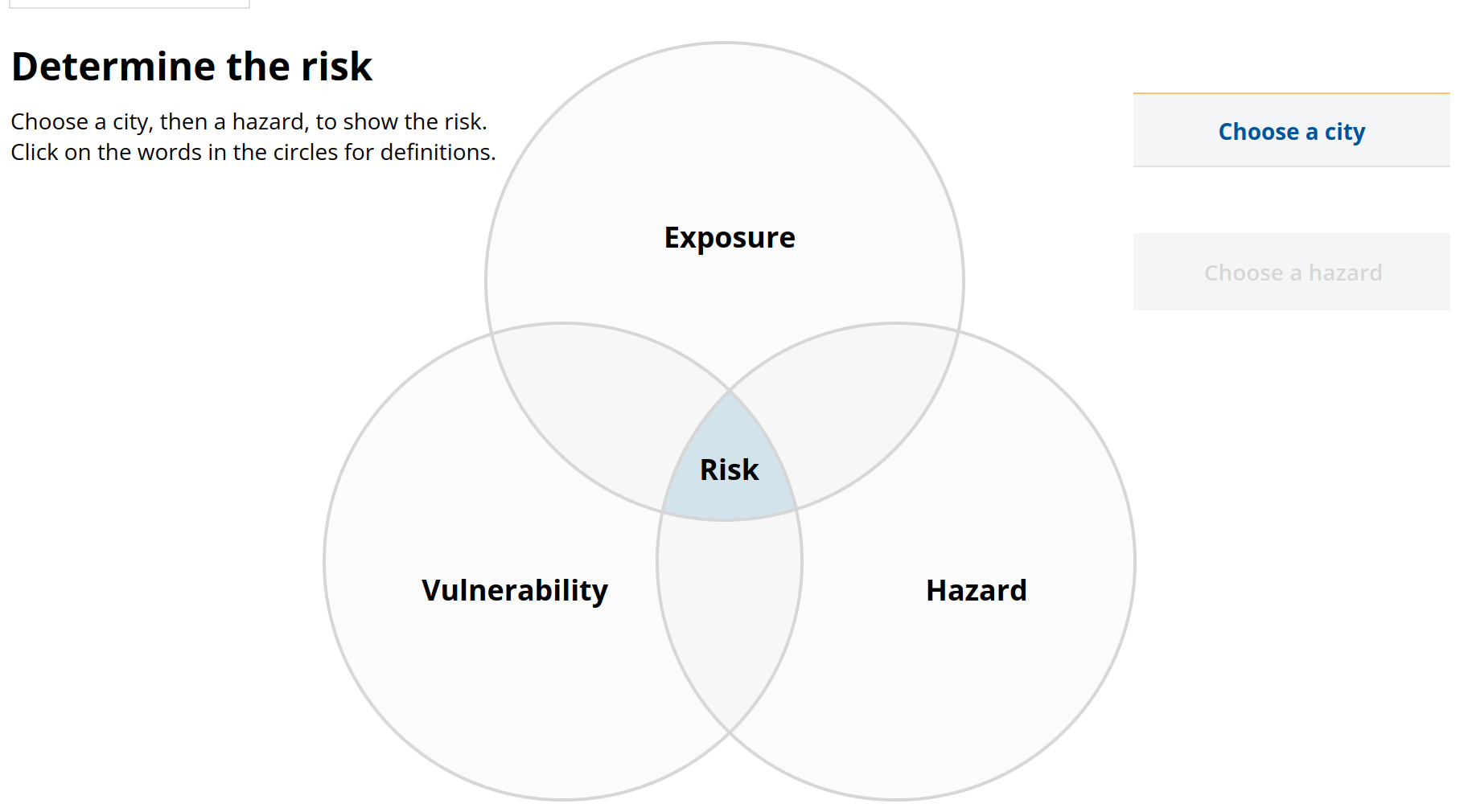
Hazards, Exposure, Vulnerability and Risk
This interactive animation graphically displays the relationships between hazards, exposure, vulnerability and risks for various geographical locations.
Sign in or register
For an ad-free experience and access the Visionlearning Classroom, sign in or register.
